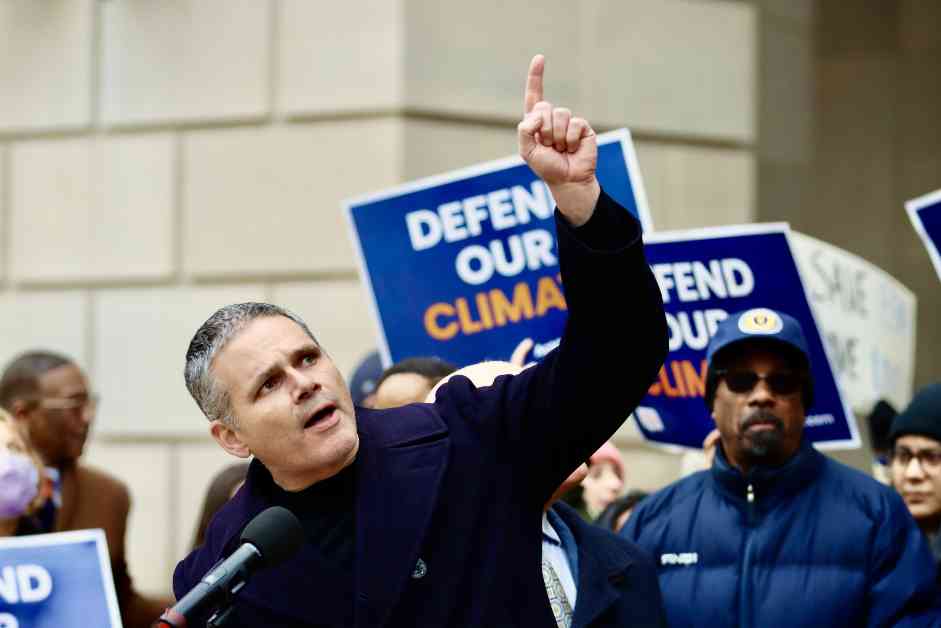Matthew Tejada, a former Environmental Protection Agency (EPA) official, led the charge in the agency’s environmental justice initiatives for over a decade. Initially hired by the Obama administration to spearhead environmental justice efforts as the director of the Office of Environmental Justice, Tejada later ascended to deputy assistant administrator and played a pivotal role in establishing the Office of Environmental Justice and External Civil Rights under the Biden administration. His tenure culminated in integrating environmental justice principles into the EPA’s regulatory and enforcement frameworks, ensuring that historically marginalized communities burdened by pollution had a voice in federal policy decisions.
During President Joe Biden’s administration, substantial resources were injected into environmental justice initiatives, with billions earmarked for community grants, technical assistance programs, and infrastructure enhancements. Tejada, instrumental in setting up mechanisms to disburse funds to underserved communities nationwide, now expresses apprehension as these hard-won gains face rollback under the current EPA leadership. The new management’s actions, characterized by diminishing funding and a departure from community engagement efforts, threaten to erode years of progress in advancing environmental justice.
Reflecting on these developments in a conversation with Inside Climate News, Tejada delves into the evolution of environmental justice over successive administrations and the repercussions of the current initiatives’ unraveling on communities long plagued by environmental neglect. As the conversation unfolds, Tejada’s insights shed light on the critical juncture at which environmental justice stands and the profound implications for vulnerable populations at the intersection of environmental hazards and social inequities.
Transformative Evolution of Environmental Justice
Recalling the nascent state of environmental justice upon his entry into the EPA, Tejada underscores the paradigm shift catalyzed by former EPA Administrator Lisa Jackson, who elevated environmental justice as a priority within the agency. The transition from a peripheral role to an integrated mission underscored a pivotal juncture in advancing environmental justice within the EPA’s purview. Tejada’s Environmental Justice Plan 2014 and the subsequent EJ 2020 document marked milestones in embedding environmental justice considerations across the agency’s spectrum of operations, setting the stage for a comprehensive, systemic approach to addressing environmental disparities.
However, the momentum gained during these initiatives faced stalling under the subsequent Trump administration, culminating in a bureaucratic impasse that undermined the progress made in mainstreaming environmental justice imperatives. The subsequent infusion of resources and policy directives under the Biden administration ushered in a transformative era marked by unprecedented funding allocations and a commitment to centering environmental justice in federal decision-making processes.
Impacts of Funding Surge on EPA and Community Dynamics
The influx of funding under the Biden administration heralded a seismic shift in the EPA’s role, transitioning from a regulatory agency to a significant grant-making entity. The allocation of billions of dollars sought to empower underserved communities, necessitating a rapid overhaul of the agency’s operational infrastructure to facilitate efficient fund distribution and program implementation. Tejada’s account underscores the cultural transformation within the EPA, where environmental justice considerations permeated diverse departments, signaling a departure from prior siloed approaches to a unified, justice-centered ethos.
Yet, the current management’s actions, characterized by rescinding funds, jeopardizing existing grants, and undermining institutional knowledge, pose a dire threat to the sustainability of environmental justice programs. The abrupt withdrawal of support has left communities in limbo, halting critical projects and imperiling the progress made in addressing longstanding environmental challenges. Tejada’s poignant reflection on the ramifications of these rollbacks underscores the urgency of safeguarding environmental justice gains and upholding commitments to marginalized communities.
As the landscape of environmental justice undergoes tumultuous shifts, Tejada’s advocacy at the Natural Resources Defense Council underscores an unwavering commitment to advancing equity and resilience in the face of systemic challenges. His transition to a new role mirrors the broader narrative of resilience and adaptation in the realm of environmental justice, where steadfast advocacy and strategic action remain essential in navigating evolving policy landscapes and safeguarding the rights of vulnerable communities.














